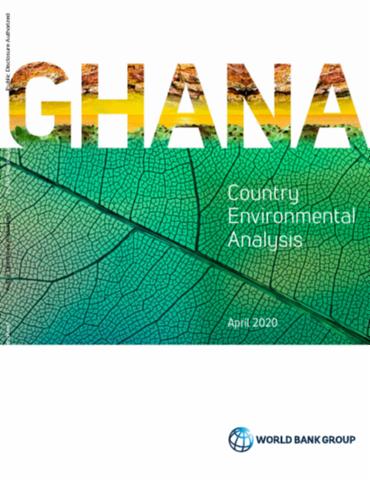Resource information
Over the past 30 years, real GDP in Ghana has more than quadrupled, and in 2011 the country joined the ranks of Lower Middle-Income Countries (LMICs). Macroeconomic momentum has been driven in part by higher prices for Ghana’s main commodity exports, gold and cocoa, and the start of commercial oil production. This fits an overall trend that has seen natural resource rents as a percentage of GDP more than double between 1990 and the present; approximately one-half of these rents come from non-renewable sources (oil, mineral, natural gas). Environmental unsustainability may impair Ghana’s economic growth, as demonstrated through two economic indicators. The first is national wealth, the measurement of a country’s assets in produced capital, natural capital (renewable and non-renewable), human capital, and net foreign assets, a gauge of growth sustainability. Between 2000 and 2014, Ghana saw total national wealth more than double. Growth is predicated on efficiently and sustainably managing natural capital, a fact which can be demonstrated through increase in its per capita value over time, and reinvesting proceeds into other forms of capital, primarily human (Lange et al., 2018). Yet, much of Ghana’s recent wealth growth came with liquidation of non-renewable assets and losses to renewable resources, as well as erosion of produced capital. Ghana’s high population growth makes this a pressing concern since existing capital stocks must be shared with younger and future generations.


